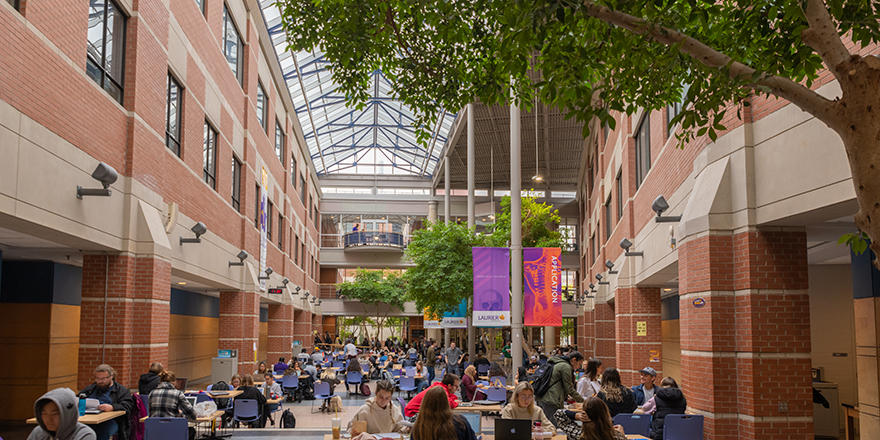How to Budget For and Afford University in Canada
How to find tuition information, research scholarships, and explore work opportunities to help pay for university.

Attending university in Canada is expensive, but it’s also a worthwhile investment in your education and your future career success. Here’s how you can figure out how much university will cost as well as some options to help you pay for your education.
Research the costs
Tuition is often the biggest university cost. It will vary across institutions and even across the different programs at each institution. Generally, you’ll be able to find estimates to give you an idea of how much your tuition will cost. But it’s also important to research other costs, like student fees, textbooks, residence and other housing options, meal plans or groceries, transportation, and your phone plan. And be sure to budget for fun things like having dinner with the new friends you’ll make at university!
Laurier has put together financial information to help you build your budget. We have cost estimates that cover a year of university, more specific information on the tuition fees by program, as well as breakdowns of student fees, residence and meal plan costs, and more.
Research scholarships
Once you know how much university will cost, be sure to look up ways to help you pay for it! Scholarships are a great place to start as these are financial awards that are often applied directly to your student account and don’t need to be paid back. And scholarships can be awarded for many reasons, including your final grades, your extra-curricular activities, your interests, financial need, and more!
At Laurier there are a variety of scholarships available to international students. Entrance scholarships are based on your final admission grades and are awarded automatically — no application is required!
There’s also the Laurier Scholars Award, worth up to $40,000 CAD, as well as the Inspiring Lives Scholarship, which is exclusive to international students and worth up to $5,000 CAD. These scholarships require separate applications.
You can also complete up to three profiles — the first-year undergraduate profile, the general student profile, and the faculty-specific profile — which will be used to assess you for dozens of competitive scholarships.
Consider ways you can earn money
Working during university might seem like too much; after all, you’re there to focus on your studies! Often, there are employment opportunities that still allow you to put your education first. Co-op and work-study placements are generally part of your program and are as long as an academic term, but you focus on working for that term instead of studying. This lets you earn money while gaining work experience and using your learning in a real-world setting. When you’re looking at programs, be sure to check which ones offer co-op or work-study options.
International students can also work up to 20 hours a week each academic term, but recent changes by the Government of Canada have expanded the number of work hours. If you’re interested in working but aren’t sure how to find a job, the university’s career services can help you.
If you’re interested in co-op, Laurier offers co-op in more than 50 programs and has Canada’s largest business degree co-op program. Laurier also has the International Student Work Experience Program (ISWEP), which helps international students find part-time on-campus jobs. And Laurier’s Career Centre can help you find the right job for you, as well as help you with your resumé, cover letter, and interview preparation.
Learn more about international tuition and scholarships at Laurier